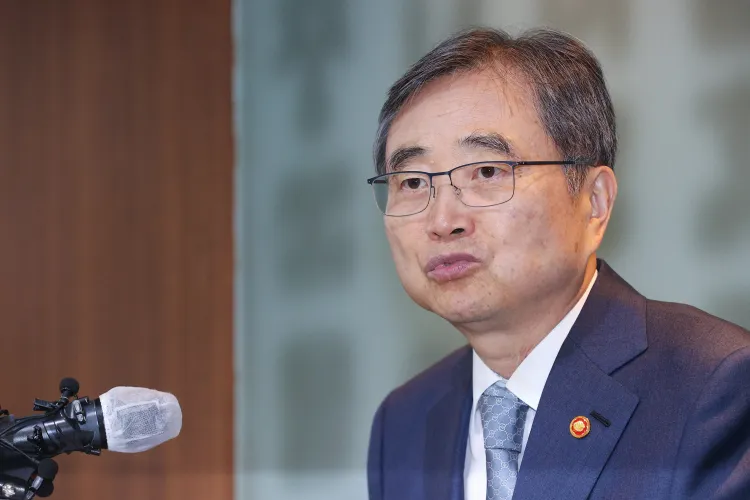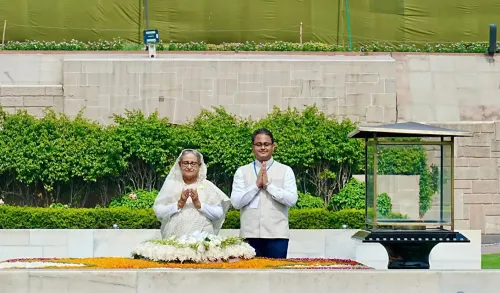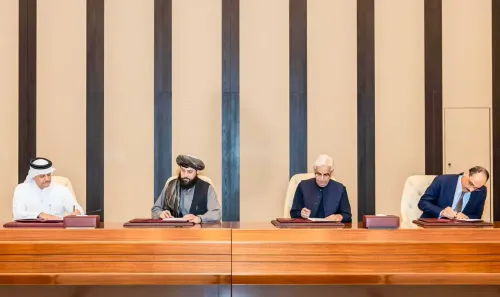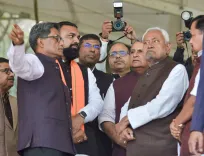Is a Nuclear-Free Korean Peninsula an Imperative That Should Never Be Abandoned?

Synopsis
Key Takeaways
- South Korea prioritizes a nuclear-free Korean Peninsula.
- Strong defense measures are essential against North Korean threats.
- Regional collaboration is crucial for stability.
- Dialogue with North Korea must be restored.
- Minilateralism may be a necessary approach in current geopolitics.
Seoul, Nov 18 (NationPress) South Korea's Foreign Minister Cho Hyun stated on Tuesday that a nuclear-free Korean Peninsula is an essential goal that must never be forsaken, emphasizing the importance of preventing the peninsula from becoming a hotspot for armed conflict.
Cho delivered these remarks during his keynote address at the Seoul Diplomacy Forum 2025, organized by the Korea National Diplomatic Academy. As the minister is currently traveling abroad, the address was presented by Youn Jong-kwon, Ambassador for international cyber affairs.
According to Cho, the foremost priority for Korea's security is to avert war and ensure that the Korean Peninsula remains free from becoming a flashpoint of armed conflict. He described a nuclear-free Korean Peninsula as an imperative that must never be abandoned, as reported by the Yonhap News Agency.
He reiterated the government's objective of phased denuclearization—starting with halting North Korea's nuclear weapons, then reducing, and ultimately eliminating them.
Seoul plans to strengthen its defensive capabilities in response to North Korean threats, but Cho insisted that these measures should also be paired with efforts to prevent accidental conflicts, reduce tensions, and restore dialogue with Pyongyang.
Cho noted that South Korea now faces increasingly complex strategic calculations, citing heightened geopolitical and geoeconomic competition, along with escalating nuclear and missile threats from North Korea.
He argued that the pursuit of peaceful coexistence should extend beyond the Korean Peninsula, advocating against the formation of rigid confrontational blocs in the region. He committed to enhancing trilateral cooperation among Korea, the United States, and Japan, as well as with China and Japan, to bolster regional stability.
During a discussion session, Japanese Ambassador Koichi Mizushima highlighted the increasing significance of South Korea-Japan collaboration amidst the decline of multilateralism on the global stage.
Mizushima remarked that minilateralism has emerged as a viable option as the global multilateral framework becomes less effective, viewing this situation as an opportunity for deeper cooperative relations between the two nations.
In the same session, Chinese Ambassador Dai Bing underscored that China does not aim to challenge any nation but is focused on improving the living standards of its 1.4 billion citizens.
Dai warned that if China's development is perceived as a threat, they will have no choice but to defend their core interests and dignity. Regarding US-China relations, he expressed a desire to avoid any trade or technology conflicts with Washington, offering a cautiously optimistic view of bilateral ties.









